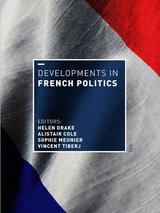D


Abstract
This article studies the determinants of international bargaining power in instances of trade negotiations between the European Union and the United States. The authors’ central hypothesis is that an appraisal of the US–EU trade relationship requires an understanding of the ways in which “domestic” political institutions shape the bargaining behavior of international actors. In particular, this article argues that the frequent EU “successes” in its negotiations with the US are the result of the bargaining power that its unique institutional arrangements grant its negotiators. In order to explain the distributional outcomes of international trade negotiations, the authors explore the “Schelling conjecture” and analyze why it is particularly relevant to the understanding of the unique bargaining power of EU negotiators when they are confronted with their American counterparts. To examine the explanatory power of domestic institutions in episodes of trade negotiations, the article analyzes the US-EC Uruguay Round agricultural negotiations (1986–1993).


